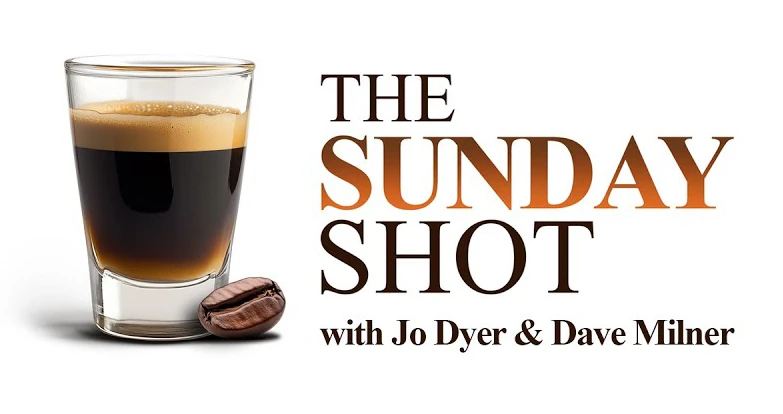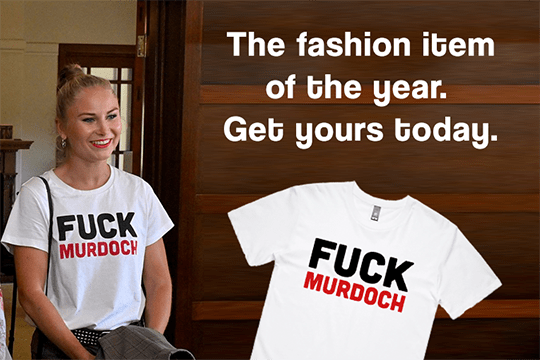Dave Milner
ABC’s assembly of ableist tropes

The ABC has finally managed to make a viral hit (that isn’t aimed at 3 year olds) in their new show The Assembly, which follows autistic journalists in training. Full of good questions, talented people and basically every modern ableist trope.
Before I explain why the show is problematic and what needs to change; I want to say that none of the autistic people deserve any of the criticism. They were all amazing and I hope they have whatever career they like, even if getting into Aussie media now is like jumping on the Titanic.
There were also the guests, who gave answers, some of which were actual answers to the questions. They are also not to blame and they can exist. I don’t really care.
Alright, now that I got that out of the way, it is time for this autist to infodump about ableism and a TV show. As is our culture.
Like many ‘disability shows’ these days, the problems with the show lies in its concept, execution and angle.
The concept of a show where disabled people ask a range of questions isn’t problematic and would make for an interesting way to bring representation to the forefront; sadly that is not what the show actually is. Instead, a decent chunk of airtime is focused on making inspiration porn about the idea of autistic journalists, and how wonderful it is that Leigh Sales would gift such an opportunity to disabled people.
I mean oh my god what a hero, right? She graciously allowed some disabled people to work an entry level job for six weeks, while she gets nothing more than a TV hosting gig and praise as if she has in any way made some sort of sacrifice.
As a young journalist, it’s nice to know that if I ever want an internship at the ABC, unlike my non-disabled colleagues, I would simply need to star in a TV show (so long as a non-disabled person is willing to get a fat pay cheque for the noble sacrifice of bothering to interact with us).
How fucking condescending.
The goal of the show is obvious if you consider how it was advertised via articles and interviews about just how impactful the show was for Leigh Sales, the only non-autistic main cast member. The ABC even posted a Gogglebox clip that literally has non-disabled people saying “aww” while watching the autistic cast speak.
Now tell me how would you feel if someone saw you doing your job or just living your life and they said “aww”?
How would you feel if you saw TV networks brag that they got people to go “aww” at the idea of someone wanting to do a job, knowing that the only reason they think it is cute is an underlying layer of infantilisation because of a condition you were born with?
One way the show elicits this condescending reaction is with the music they add in the edit. If you were to picture the music for a journalistic show, I doubt you would think of the kind of music that Christmas movies use when they show a baby. But that is exactly the kind of music they use here.
If you’ve seen the even more problematic show ‘Love on The Spectrum’, you’ve heard the music a lot… also yuck.
Some may try to argue that the music fits, because some of the questions are about things like Taylor Swift and dating. However, it is hard to sit comfortably with the way the music was used while the journalists were preparing questions for the Prime Minister. Questions on topics like unemployment in the disabled community, the lack of autistic representation in Australian politics, and eugenics.
Those questions are more hard hitting than anything we see from the Canberra press pack, which makes sense since these people plan to become actual journalists, yet the very idea of a disabled journalist wanting to ask serious questions is packaged in a way to present it as cute and childish.
This is incredibly ableist and deeply insulting to the journalistic work done by these talented people who will now have their entire careers painted with this brush. But not just them, what does it say about the journalistic work of any other autistic journalist, too?
While this approach to ‘representation’ may seem harmless on the surface to most people, you need to consider the influence that constant framing like that has on both the autistic community and how the rest of society sees us.
If it’s not wholesome, inspiring or sweet for a non-disabled person to do something, it is ableist to suggest that it is when a disabled person does it.
The media presenting disabled people wanting to do regular things as something that is inherently ‘wholesome’, only serves to perpetuate underlying ableist notions that infantilise disabled people and hold us back.
The fundamental underlying problem with these shows is that they are focused on portraying a sanitised lens for approval of non-disabled audiences using disabled people as props.
You can literally make a better version of the show using the existing material. With tiny changes they could have made a show that is just the questions and answers, which would be positive representation, but they didn’t want to. They could have followed disabled journalists around to show the systemic issues disabled people in the field face, but they didn’t want to.
In this current wave of marketable disability television, the angle TV networks always seem to choose is one that feeds into society’s infantilisation of disabled people, instead of one that challenges it.
Fuck that shit.
Autistic people deserve better representation. Disabled people in general deserve representation. TV audiences deserve the best possible versions of the shows.
While real representation won’t come until TV shows stop treating disability as a gimmick and just make more regular TV that has disabled talent, at the very fucking least, they can start by showing us as the adults we are.
For things to move forward, we need to stop enabling and encouraging that which holds us back.






